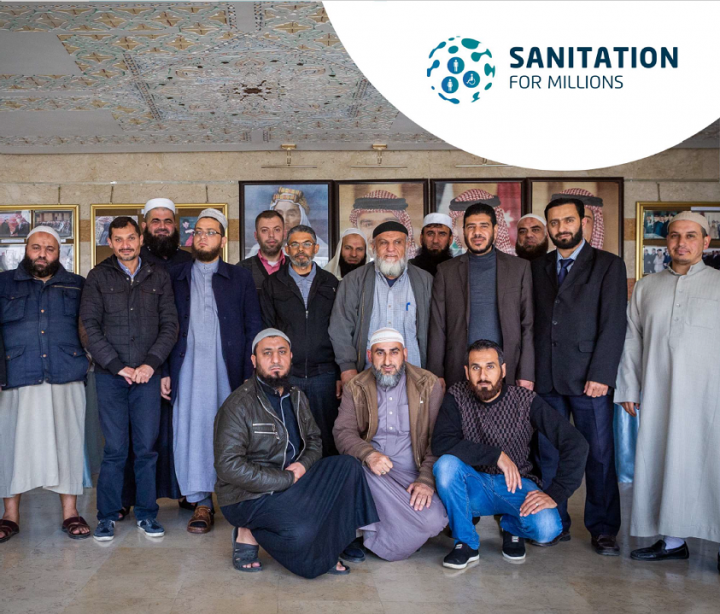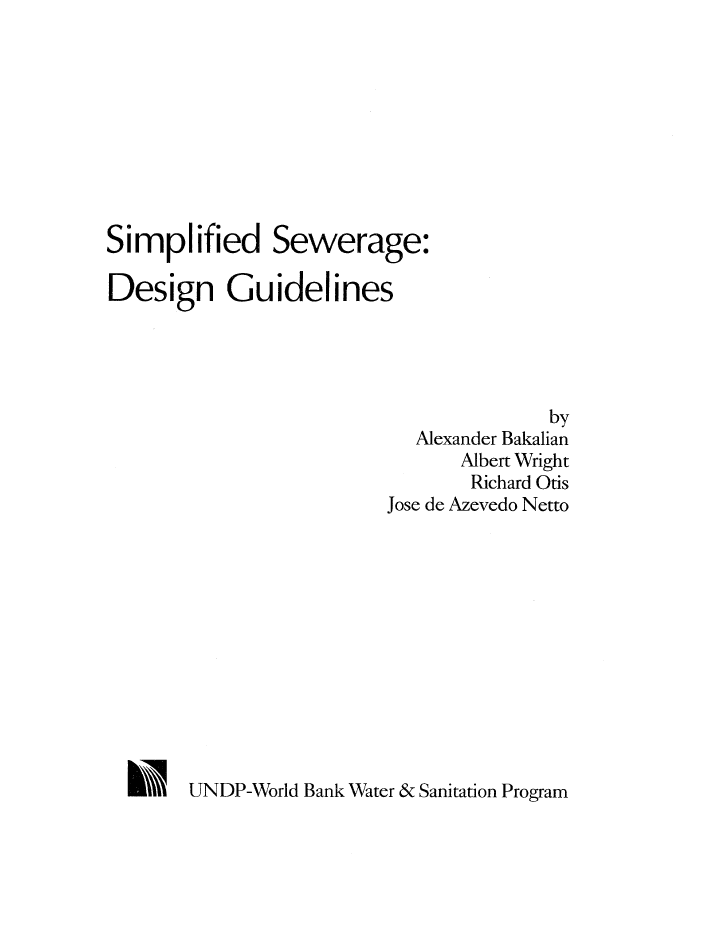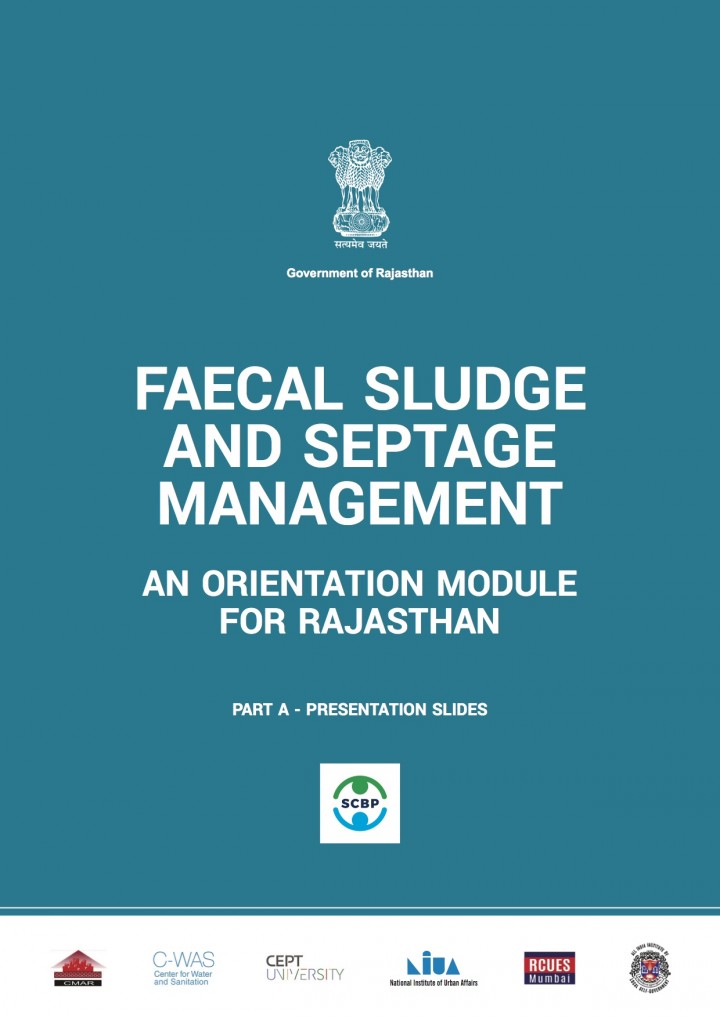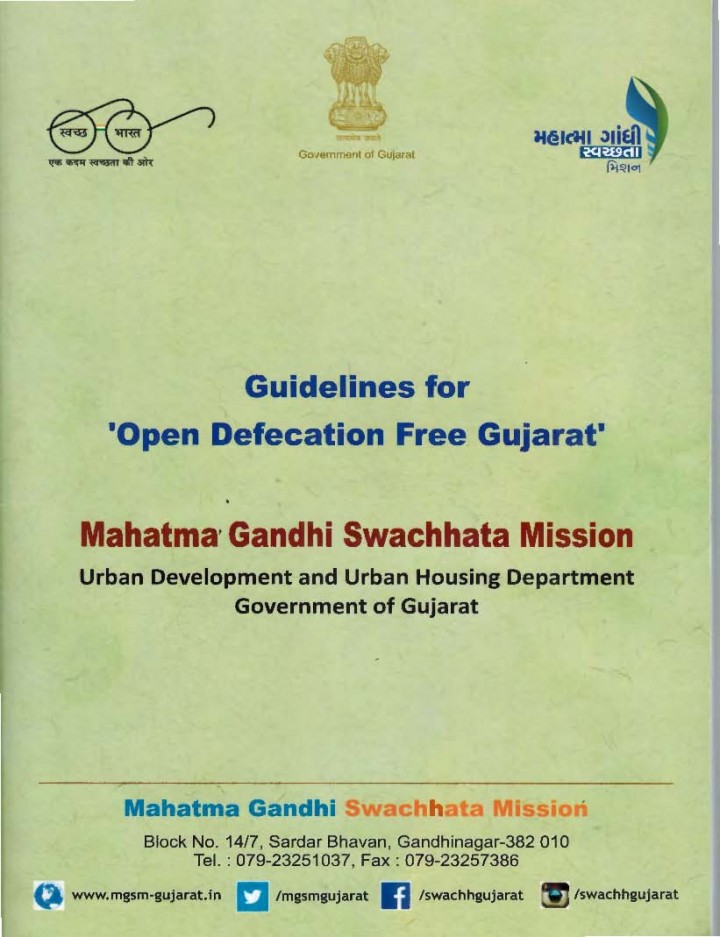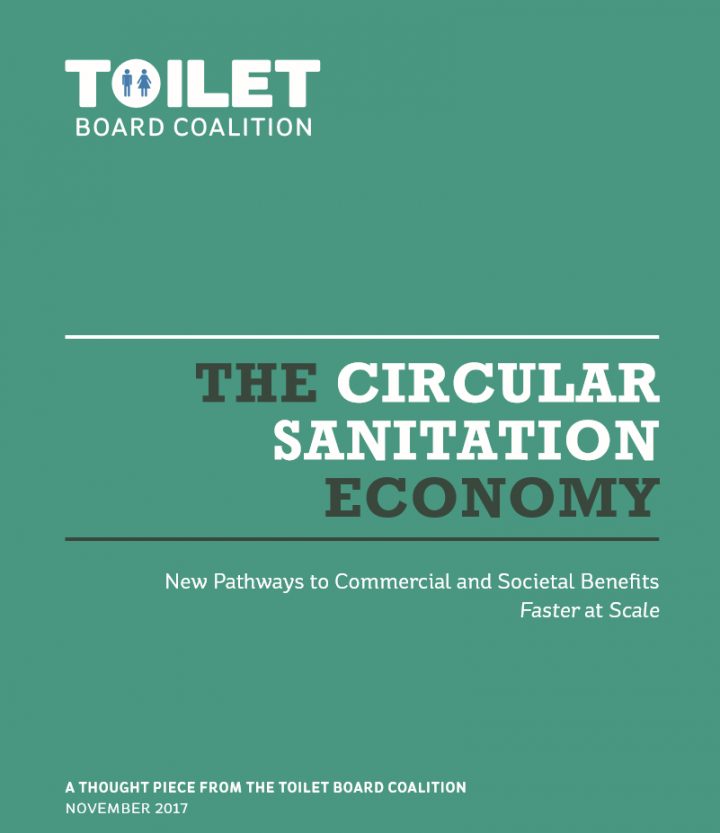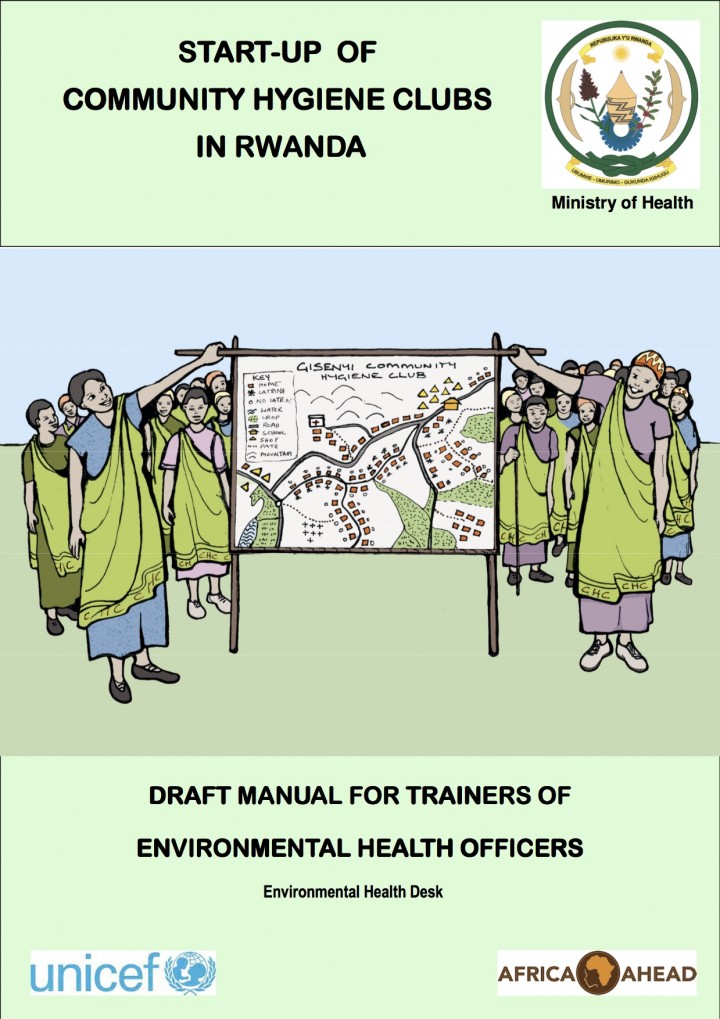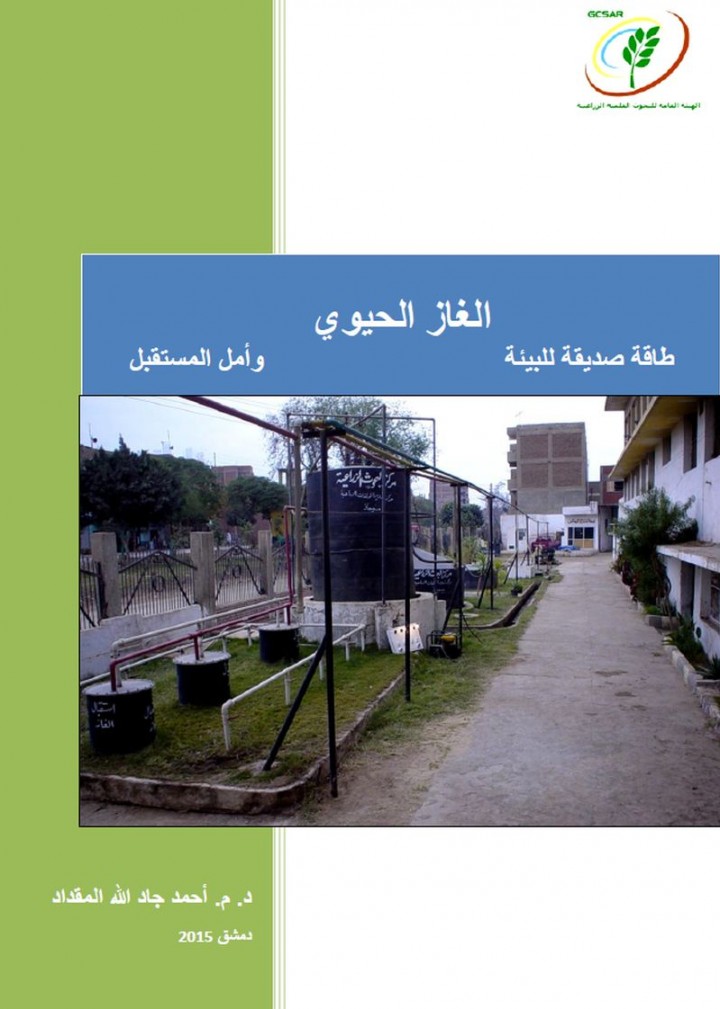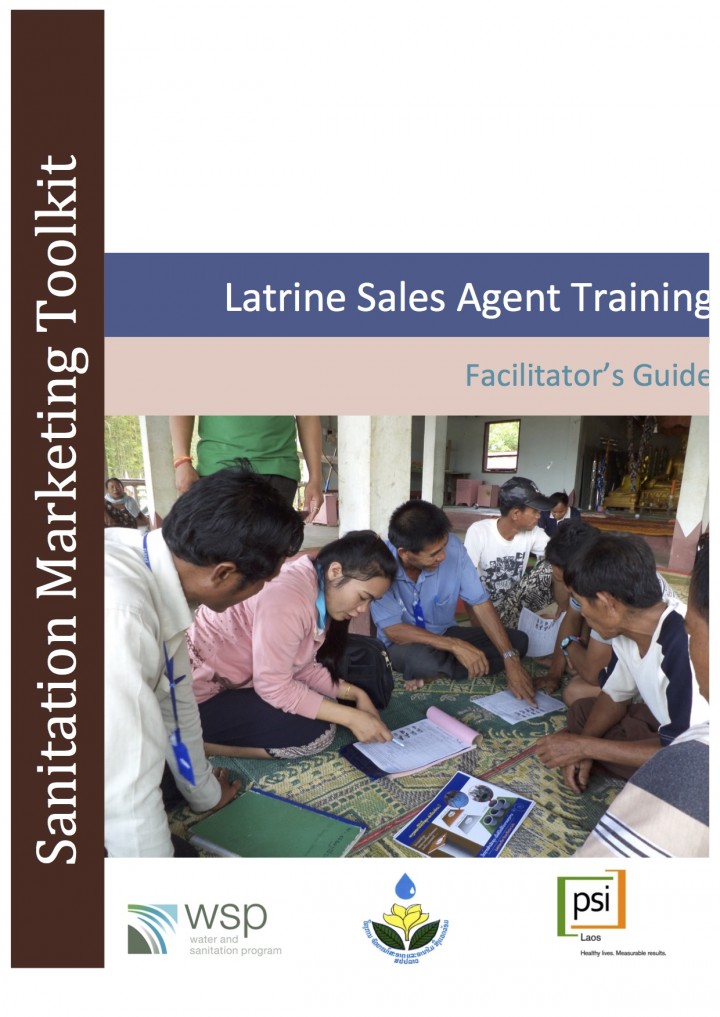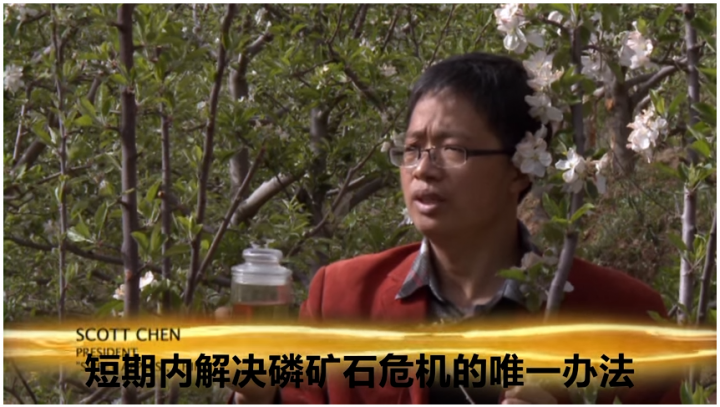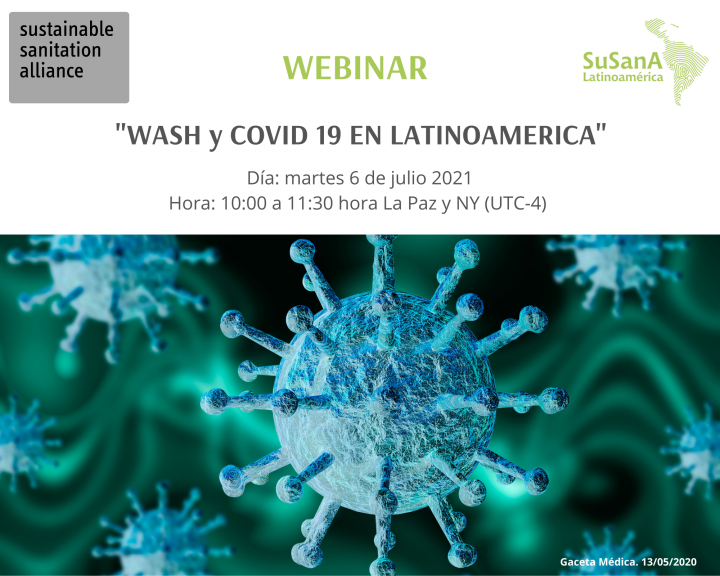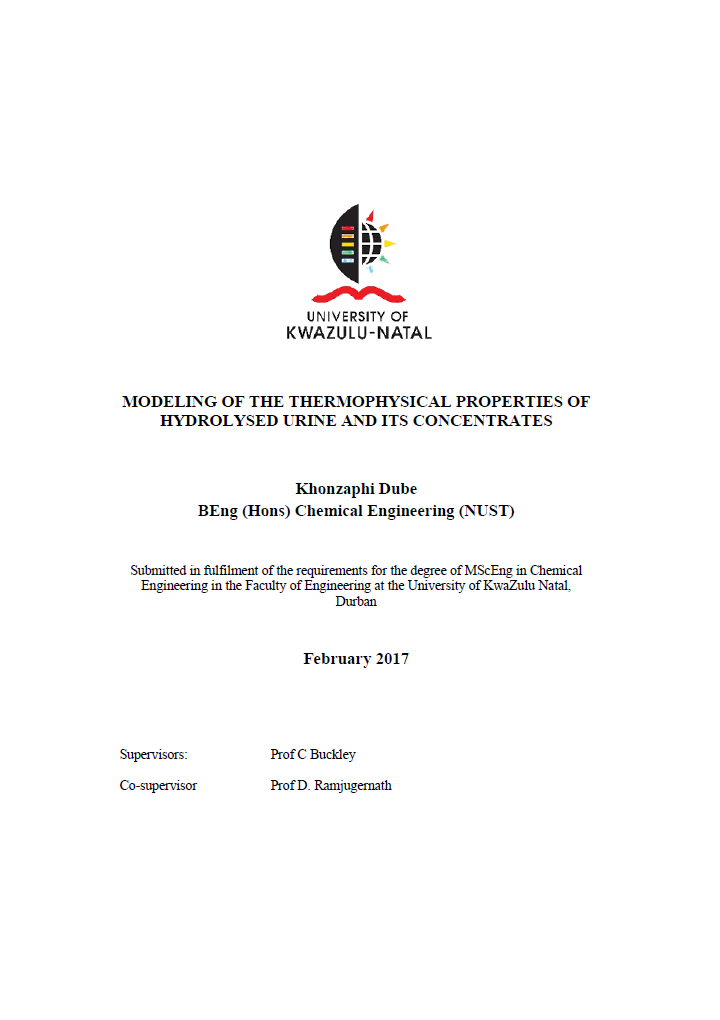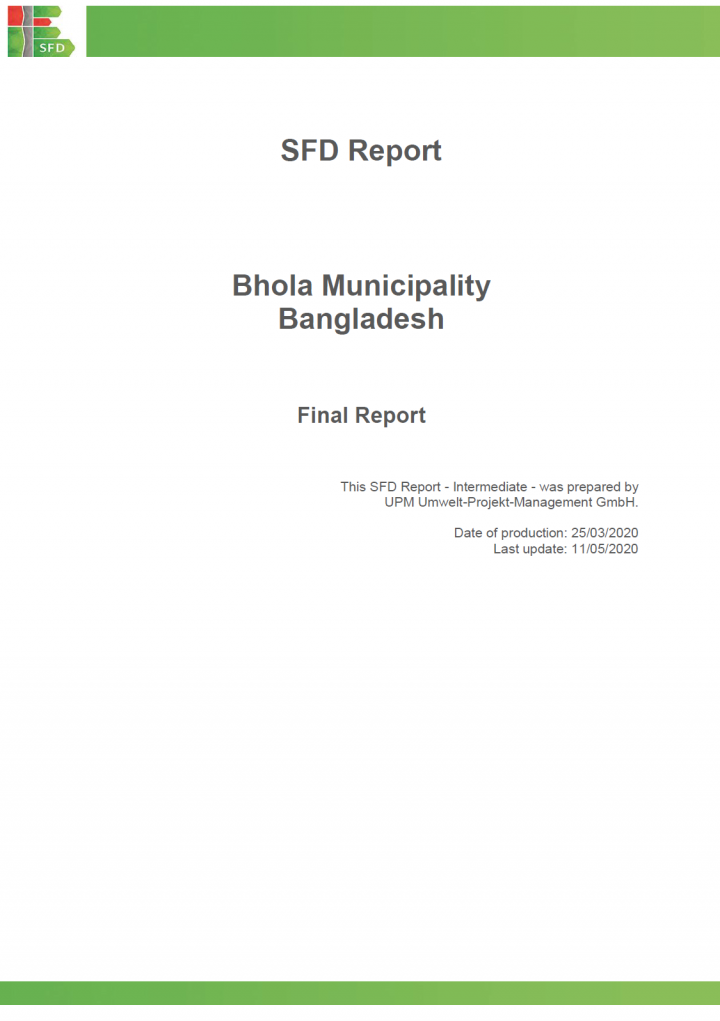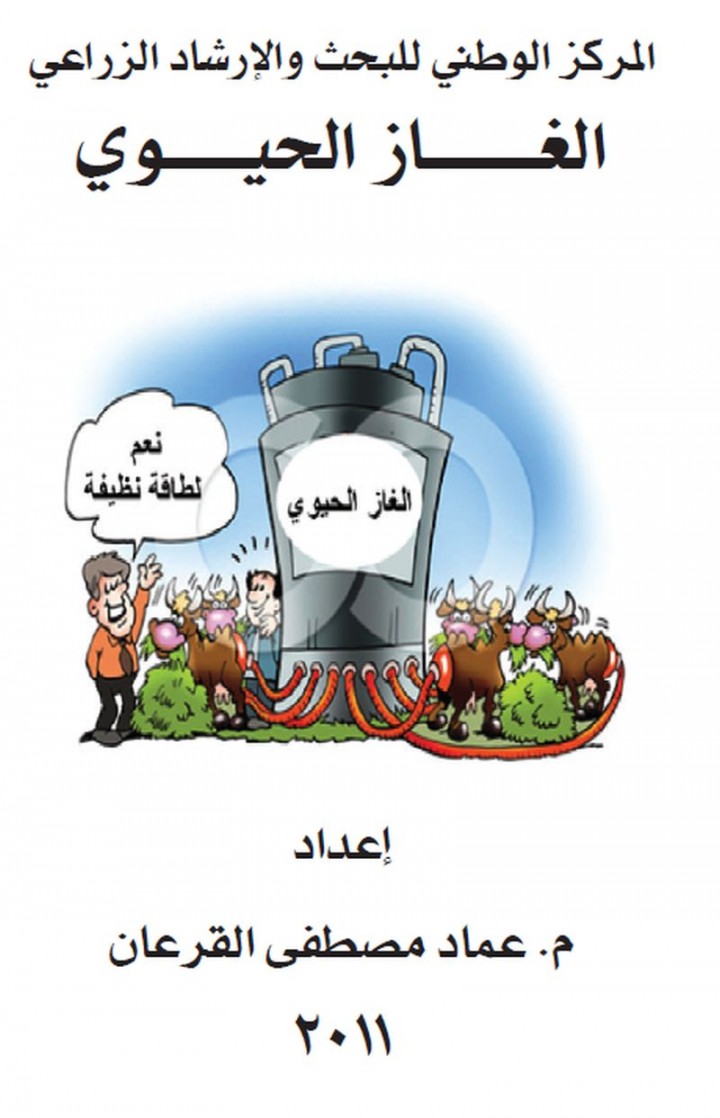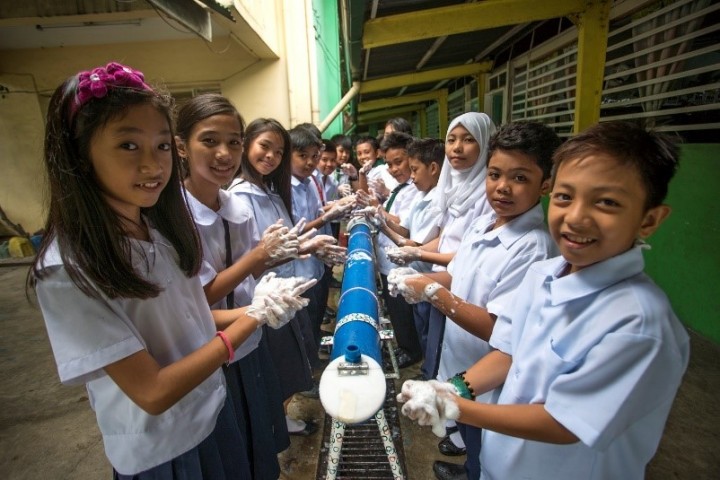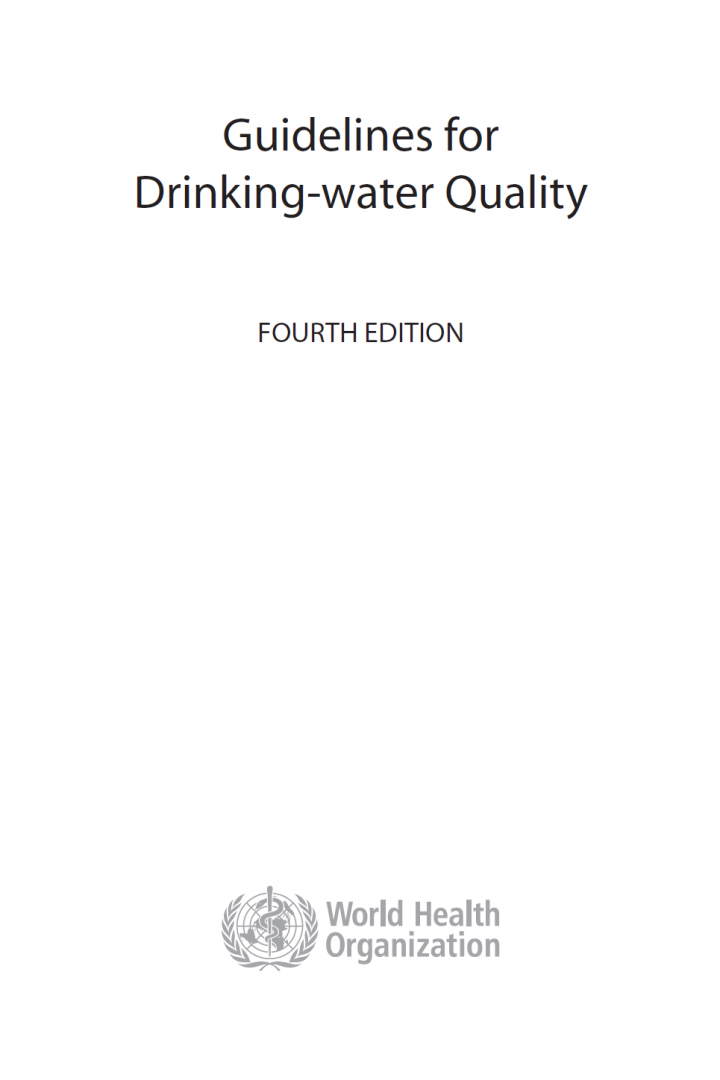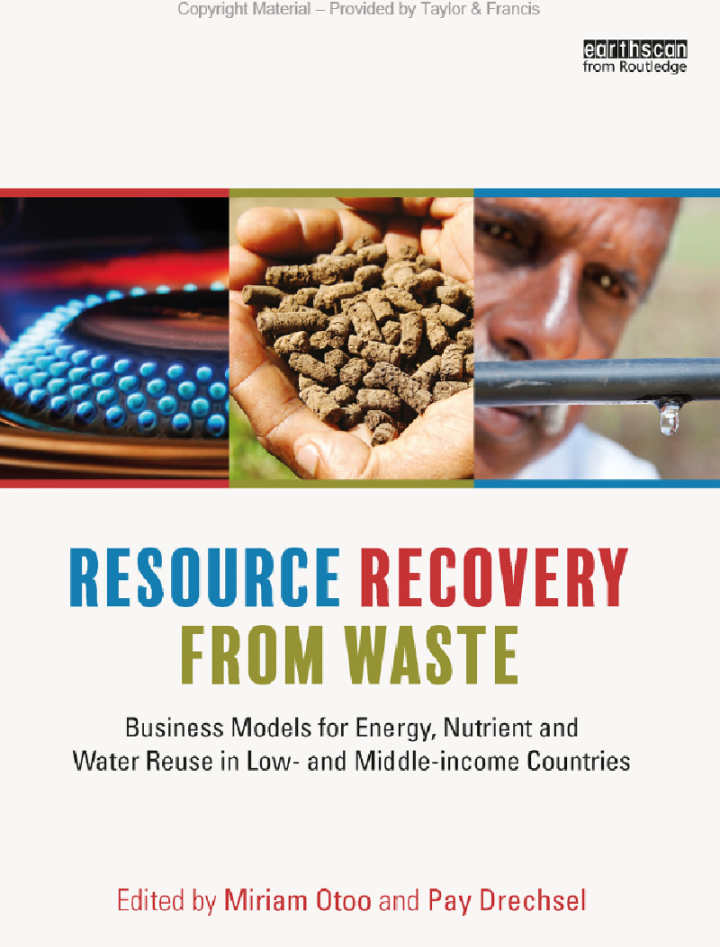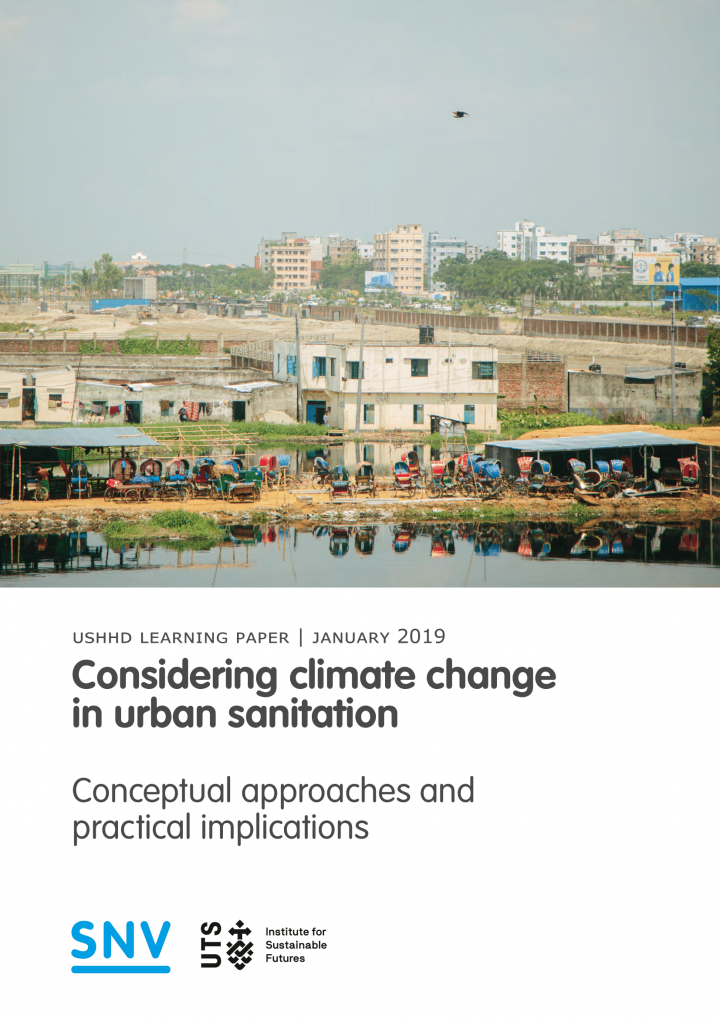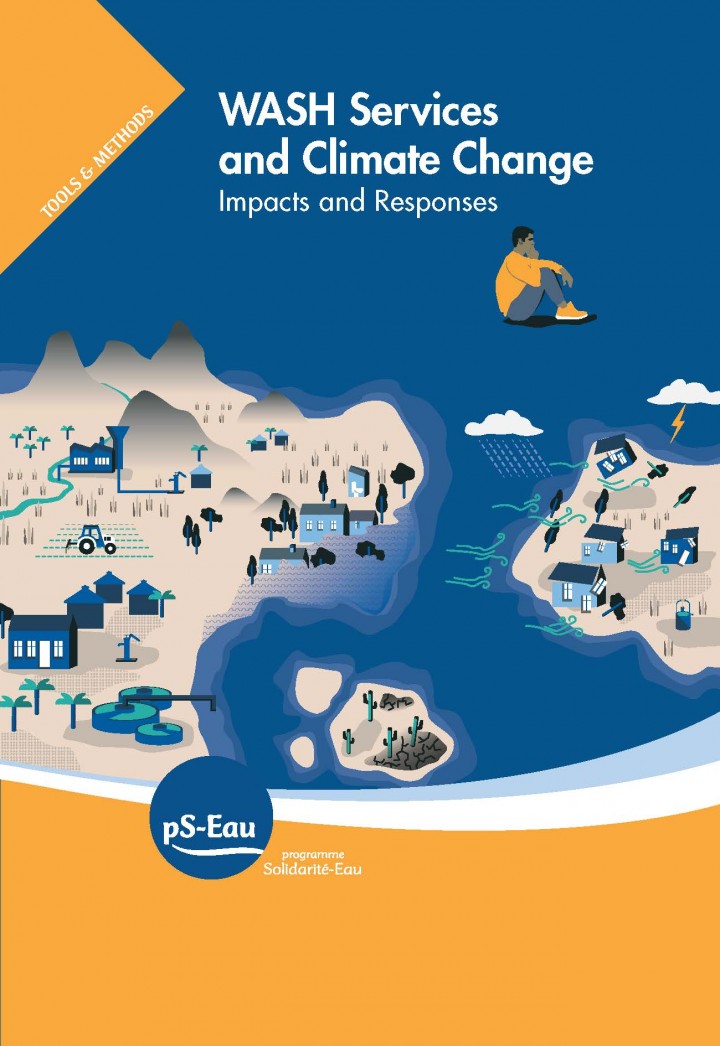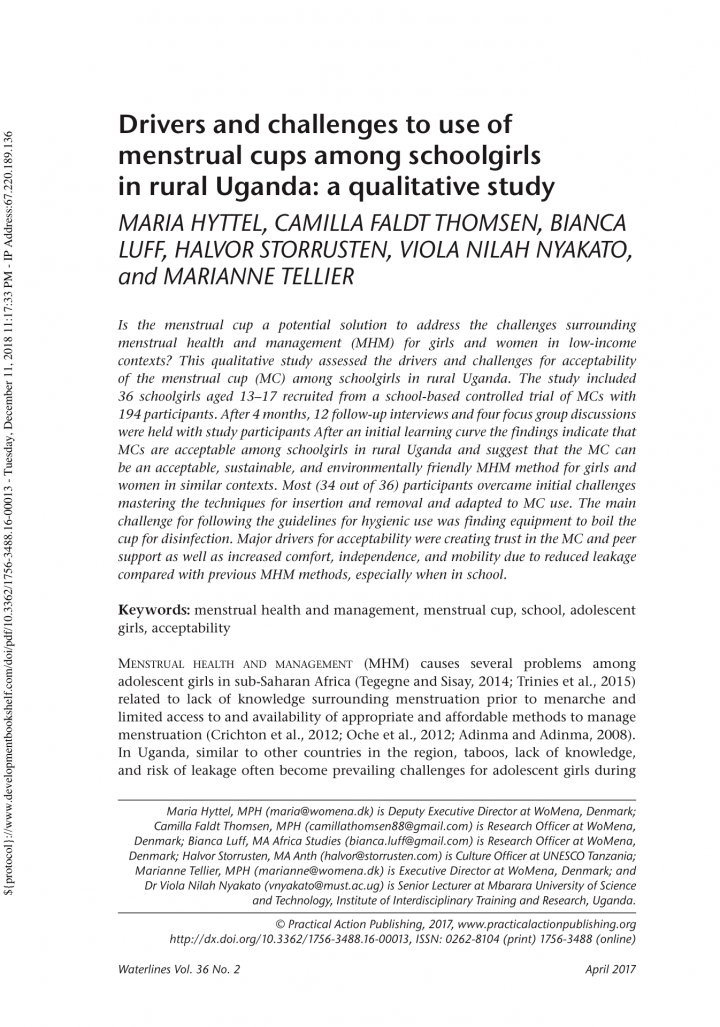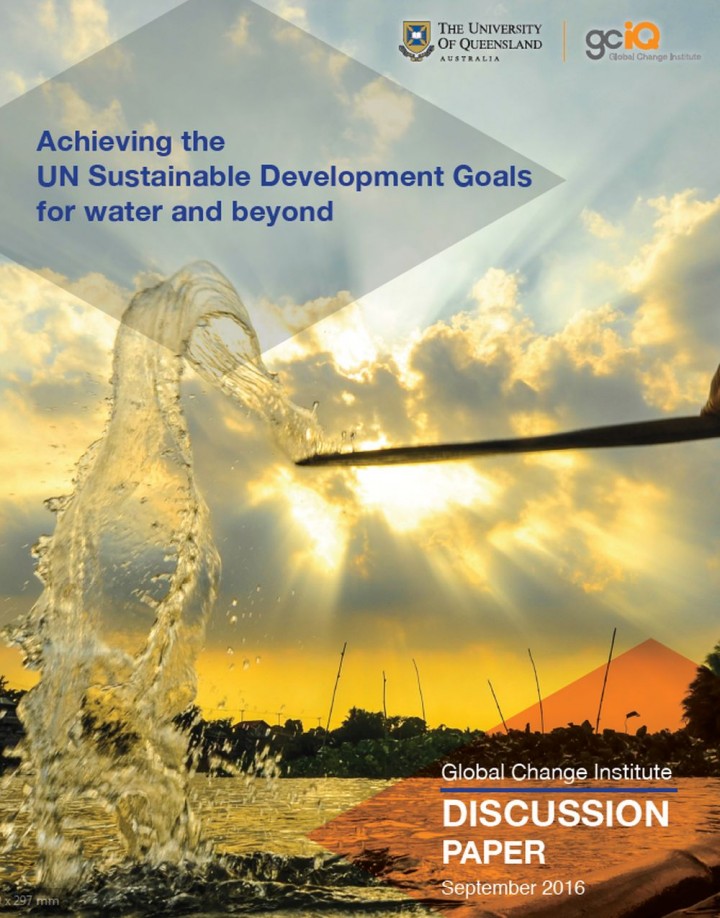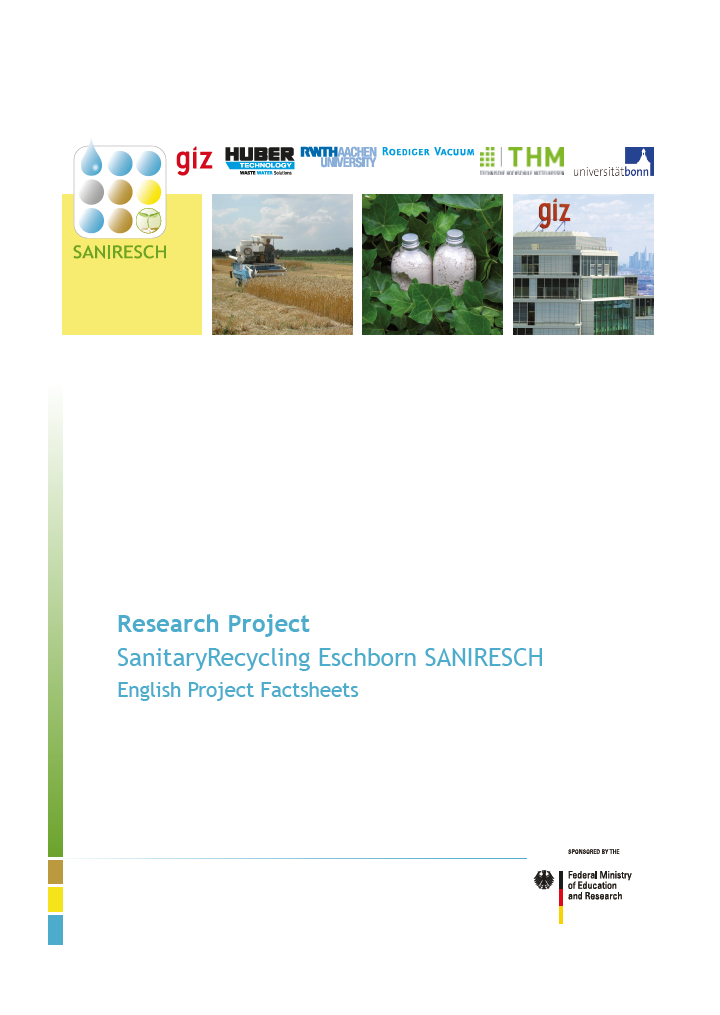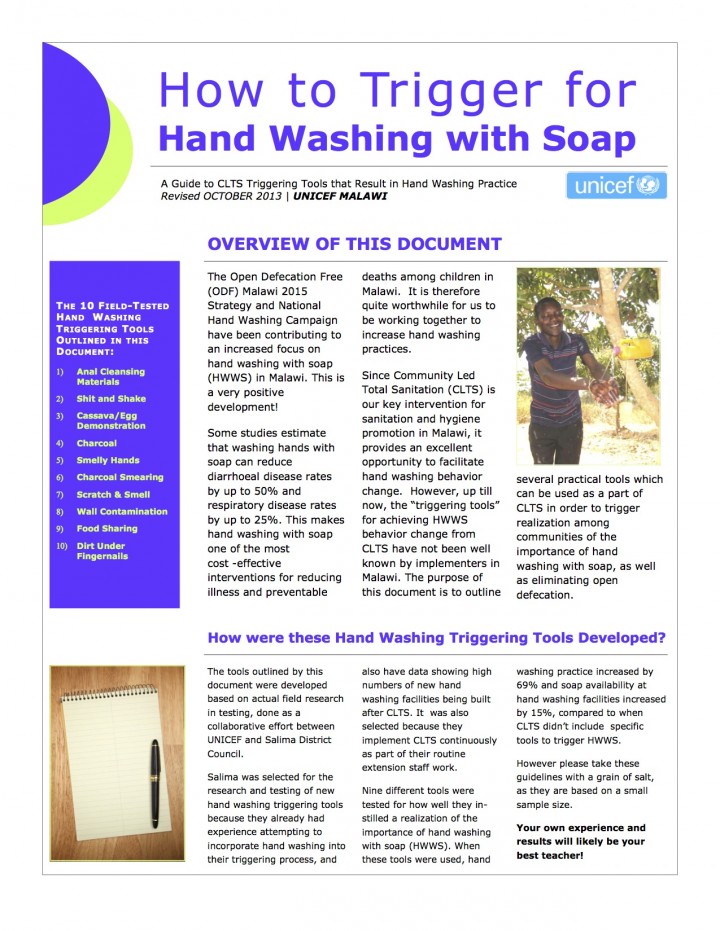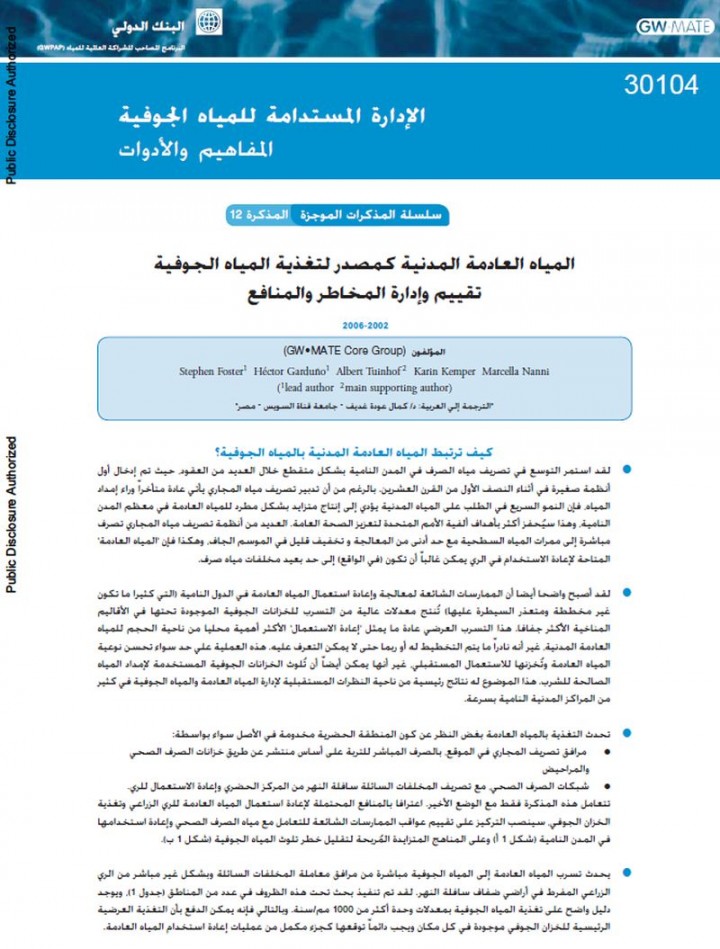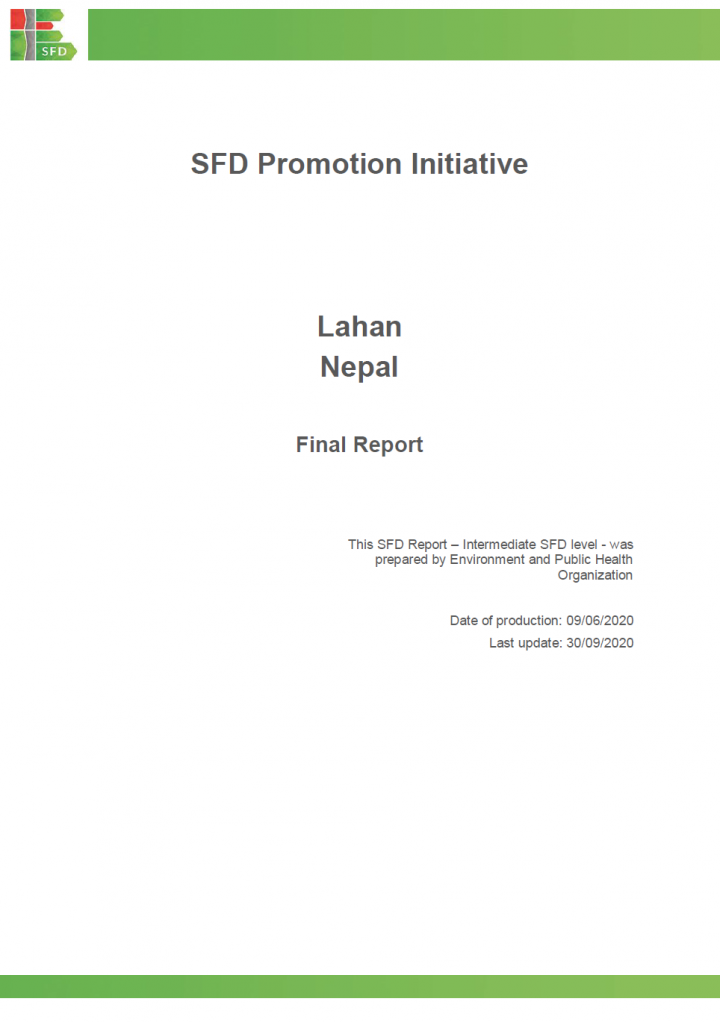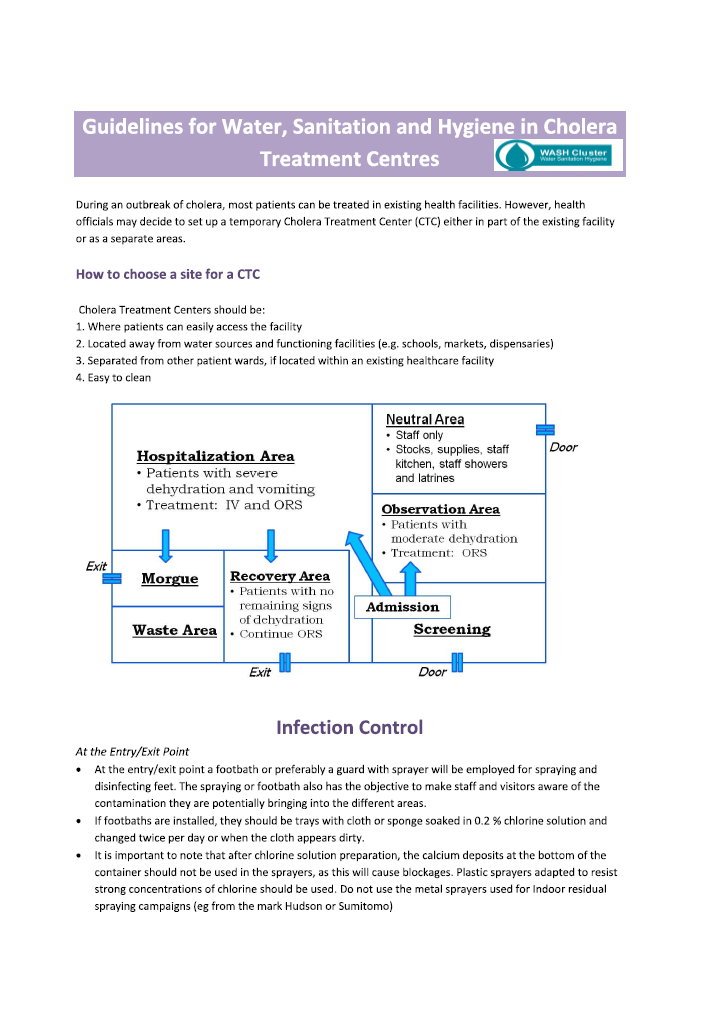Searching for information on Sanitation Workers?
The Sanitation Workers Knowledge + Learning Hub is the best source for all current news, trends, articles and updates on sanitation workers rights around the world.
Universal access to adequate sanitation is one of the under-appreciated achievements of many societies – and unfortunately remains a distant dream for millions. Even in countries where there is no home without a toilet, public institutions tend to have facilities that are part of the unseen fabric of civilisation. Familiar signs guide the way to public conveniences that are usually open to …
This report presents design guidelines used for simplified sewers. It is based on information collected from a number of projects in Brazil and through discussions held with the staff of the state water companies of Sao Paulo (SABESP) and Parana (SANEPAR). Additional data from the literature and other areas are also presented.
About the Training Modules
Training Modules on decentralsid sanitation, septage and waste water have been developed, tested and delivered by SCBP during 2016-17, during training of government officials from UP, Rajasthan, MP, Telengana, Bihar, Karnataka, West Bengal, Jharkhand and Chattisgarh. These Modules have also been used in Training of Trainers(ToTs) of Amrut Nodal Agencies, Academia, …
This guideline is a ready reckoner for Urban Local Bodies of Gujarat to achieve Open Defecation Free cities/towns. The document has been prepared based on the National guidelines of Swachh Bharat Mission (Urban).
The document highlights strategies for achieving OD free settlements include but are not limited to:
1. Ensuring adequacy of toilets –individual and public toilets and Effective …
The TBC is enabling private sector engagement; connecting large and small companies; and ensuring close collaboration between private, public and non-profit sectors with the common goal to achieve Sustainable Development Goal 6 (SDG6), universal access to sanitation.
Objectives:
To demonstrate the commercial viability of the Circular Sanitation Economy, by backcasting from the future, to …
The Government of Rwanda, through the Ministry of Health, launched the Community-Based Environmental Health Promotion Programme (CBEHPP) on 17th December 2009. The purpose of this programme is to significantly reduce, by 2012, the debilitating national disease burden that currently exists and, in so doing, will contribute significantly to poverty reduction outcomes. CBEHPP will strengthen the …
En el inicio de COVID 19, la Sesión Stepping Stone - Capítulo de América Latina compartió ejemplos de soluciones y acciones durante la situación de pandemia sobre los siguientes temas.
1. Campaña Nicaragua Saludable y el Análisis de los retos de los CAPS para asegurar la sostenibilidad de los servicios de agua potable en el contexto de COVID 19
2. Covid-19 y las barreras al agua …
Bhola is one of the administrative districts (Zila) located in south-central Bangladesh with a total area of 3,404km2 and a population of 1.8 million inhabitants. Part of the district is Bhola island which, despite being the largest island of Bangladesh, only can be accessed by boat at this point. This island of 1,441km2 is divided into seven Upazila (sub-districts). One of these Upazila is Bhola …
The WASHaLOT 3.0 is a prefabricated handwashing facility that accommodate washing activities of 20 persons at a time. It is currently being used in public schools in the Philippines to address the need for schools to facilitate handwashing prior to eating and thereby establish daily hygiene practice in schools. The facility has the potential to be used in other contexts such as day care centers, …
This fourth edition of the World Health Organization’s (WHO) Guidelines for drinking-water quality builds on over 50 years of guidance by WHO on drinking-water quality, which has formed an authoritative basis for the setting of national regulations and standards for water safety in support of public health.
It is the product of significant revisions to clarify and elaborate on ways of …
Humans generate millions of tons of waste every day. This waste is rich in water, nutrients, energy and organic compounds. Yet, waste is not being managed in a way that permits us to derive value from its reuse, while millions of farmers struggle with depleted soils and lack of water. This book shows how Resource Recovery and Reuse (RRR) could create livelihoods, enhance food security, support …
This paper presents a comprehensive conceptualisation of how climate change could be considered in urban sanitation policy and programming.
Given the urban sanitation crisis facing many cities in developing countries, consideration of climate change can seem like an unwanted distraction from the immediate problems at hand (Bartram, et al., 2017). Climate hazards are often perceived as …
Climate change and its impacts can be seen in many regions around the world and is having a major effect on the large water cycle, resulting in rising sea levels, disrupted seasonal rainfall patterns, a rise in average global temperatures, droughts, heatwaves and more frequent extreme weather events.
These climate-related hazards have repercussions for the availability and continuity of water …
Is the menstrual cup a potential solution to address the challenges surrounding menstrual health and management (MHM) for girls and women in low-income contexts?
This qualitative study assessed the drivers and challenges for acceptability of the menstrual cup (MC) among schoolgirls in rural Uganda. The study included 36 schoolgirls aged 13–17 recruited from a school-based controlled trial of …
This transdisciplinary discussion paper, from 13 researchers across seven schools at The University of Queensland, considers Australia’s efforts to achieve the United Nations Sustainable Development Goals in Australia and within the broader Asia-Pacific region. It focuses particularly on those SDGs that are concerned with water, and it challenges the current steps being undertaken towards …
Since Community Led Total Sanitation (CLTS) is our key intervention for sanitation and hygiene promotion in Malawi, it provides an excellent opportunity to facilitate hand washing behavior change. However, up till now, the “triggering tools” for achieving HWWS behavior change from CLTS have not been well known by implementers in Malawi. The purpose of this document is to outline several …
Lahan municipality is located in Siraha district of province number 2, Nepal. The municipality is divided into 24 wards. The municipality is home to 91,766 people as per census 2011. The population growth rate was 1.16% per year from 2001 to 2011.
This SFD Report was produced on 09/06/2020 and last updated on 30 /09/2020.
During an outbreak of cholera, most patients can be treated in existing health facilities. However, health officials may decide to set up a temporary Cholera Treatment Center (CTC) either in part of the existing facility or as a separate areas. This publication provides guidelines for water, sanitation and hygiene in CTC.

